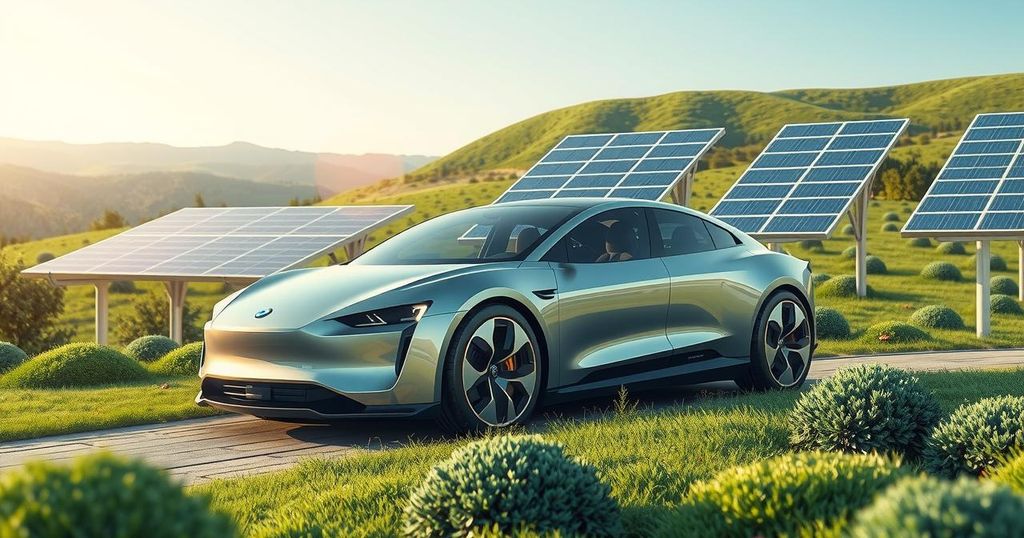Morocco’s Vision for Electric Vehicle Production and Sustainable Transport

Morocco is set to lead in electric vehicle production by creating vehicles from raw materials to assembly. The plan aims to triple exports by 2030 and includes significant investments in electric public transport, such as 7,000 electric buses. These initiatives are part of Morocco’s commitment to reducing carbon emissions and enhancing its transport infrastructure ahead of the 2030 FIFA World Cup.
Morocco has unveiled its ambitious plans to position itself as a leader in electric vehicle production and sustainable transport solutions. Industry and Trade Minister Ryad Mezzour stated that the country aspires to be among the few globally capable of constructing electric cars entirely from scratch, encompassing every stage from extracting raw materials to producing batteries and assembling vehicles.
Speaking at a green energy conference in Casablanca, Minister Mezzour emphasized that Morocco is not merely envisioning this transformation but is already in the initial stages of the process. He noted that this development would uniquely qualify Morocco within the Euro-African region as a nation equipped to manufacture electric vehicles comprehensively.
The government’s strategy includes mining critical materials such as phosphate and cobalt, creating battery components, and completing vehicle assembly. It is anticipated that this initiative will facilitate a tripling of Morocco’s exports by the year 2030. In addition to enhancing vehicle production, Morocco is strategically investing in cleaner public transportation systems.
Initiatives include the procurement of electric buses, with plans to integrate 7,000 into the national transport network. The first order consists of 1,300 buses, with intentions to ensure that at least half of the remaining 6,000 units are electric. Authorities indicated that local production of high-powered electric buses is in progress, with current costs ranging from $180,000 to $200,000 each.
As the 2030 FIFA World Cup approaches, Morocco is framing its green transition within a broader initiative to modernize its transportation infrastructure and mitigate pollution. Minister Mezzour affirmed that these advancements align with Morocco’s commitment to achieving zero carbon emissions in the future.
Morocco’s strategic move to develop electric vehicle manufacturing capabilities signifies its commitment to green transportation and sustainability. By securing the entire production process and expanding electric public transport, the nation aims to improve its export potential and reduce environmental impact. With the World Cup on the horizon, these efforts represent a significant shift towards a greener, more modern transportation system.
Original Source: globalsouthworld.com





